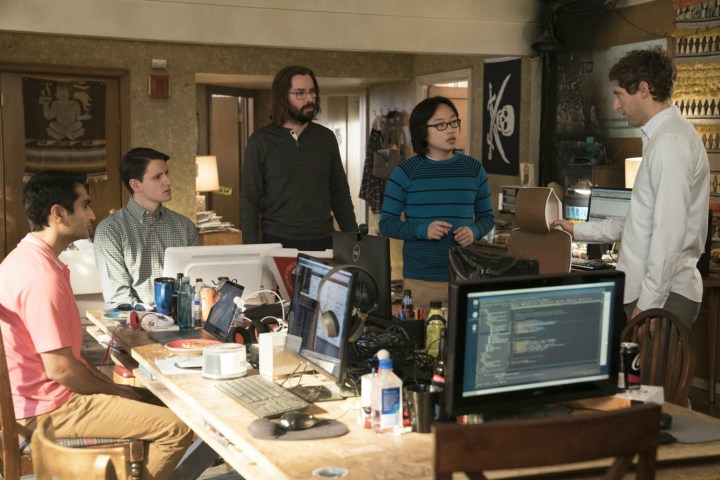
We’re a few episodes into the fifth season of HBO’s hit comedy series Silicon Valley, and the network has already announced that it is renewing the show for a sixth season. HBO announced the return of Richard Hendricks and company on its official Medium account, alongside news of a second season for the Bill Hader-led dark comedy series Barry, which debuted the same day as Silicon Valley’s fifth season premiere.
“While Barry has delighted audiences with its deft interplay of comedy and drama, Silicon Valley remains as brilliantly and frighteningly prescient as ever,” Amy Gravitt, executive vice president, HBO Programming, said. “We’re thrilled that these two smart, funny shows are returning for another season.”
We just keep coming back for more. #Season6 #SiliconValleyHBO pic.twitter.com/nn7unqfN9F
— Silicon Valley (@SiliconHBO) April 12, 2018
Silicon Valley follows a group of five programmers who create a startup company in the tech epicenter that gives the series its title. The series is a collaboration between Mike Judge (Beavis and Butt-Head, King of the Hill) and Alec Berg (Seinfeld, Curb Your Enthusiasm, Barry) and is an Emmy winner and Golden Globe nominee.
Its eight-episode fifth season debuted on March 25 with a timely jab at current tech events, as the opening credits poked fun at Facebook’s purported role in influencing the 2016 presidential election. The show picks up where Hendricks (Thomas Middleditch) and the rest of the team at Pied Piper left off in their attempts to deliver a “new internet.” We wouldn’t be surprised to see future episodes dive further into the Cambridge Analytica scandal.
Joining show creators Judge (also executive producer), John Altschuler, and Dave Krinsky for season five are executive producers Alec Berg, Clay Tarver, Michael Rotenberg, Tom Lassally, Jim Kleverweis, and Jamie Babbit; co-executive producers Anthony King, Graham Wagner and Ron Weiner; and consulting producers Carrie Kemper, Carson Mell, Jonathan Dotan, Todd Silverstein, and Josh Lieb.
The current season is the first without T.J. Miller, who played Erlich Bachman, the founder of the tech incubator where the fictional startup Pied Piper was formed. Jian Yang, played by Jimmy O. Yang, seems to have stepped up to fill his place, taking a more prominent role on the series. In addition to Yang and Middleditch, the series’ regular cast also includes Zach Woods, Kumail Nanjiani, Martin Starr, Josh Brener, Amanda Crew, Matt Ross, and Suzanne Cryer.


